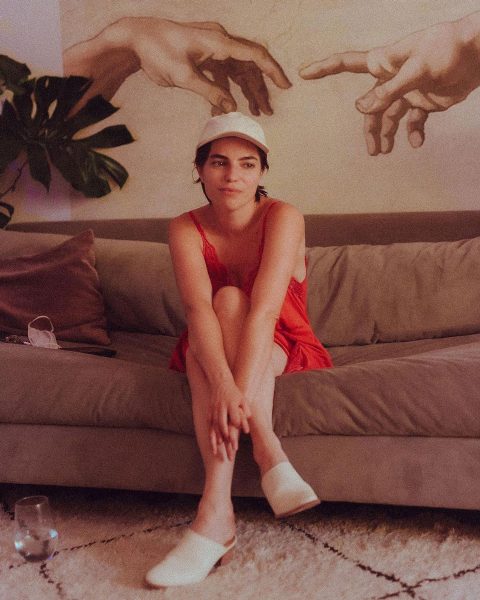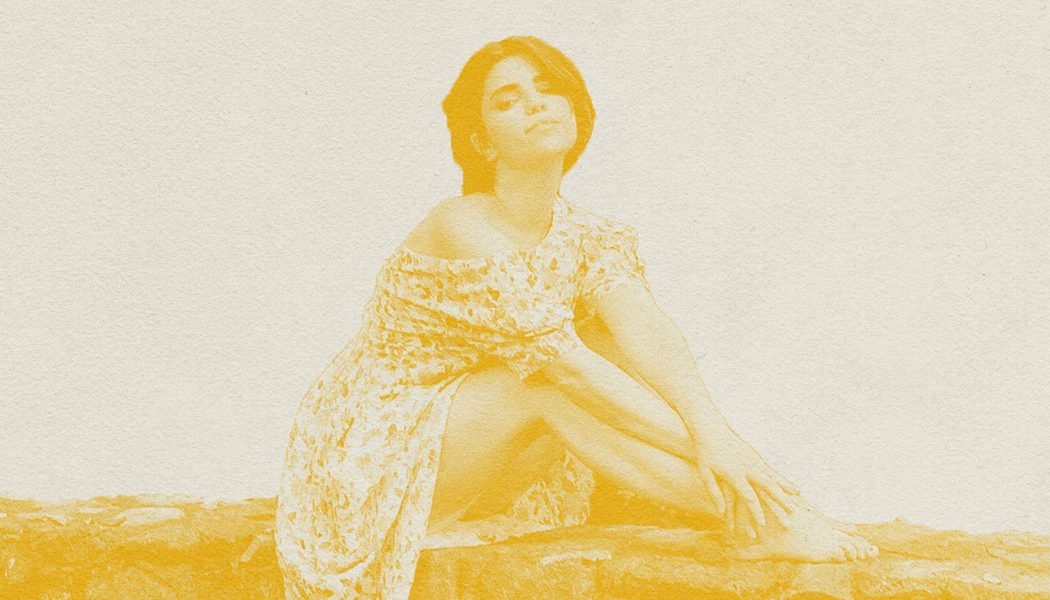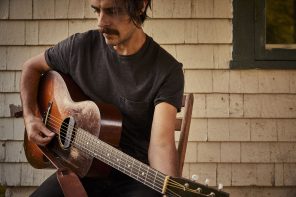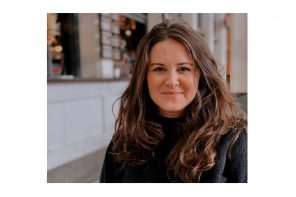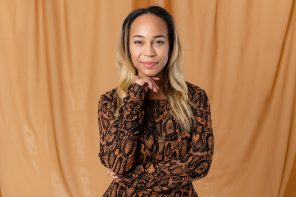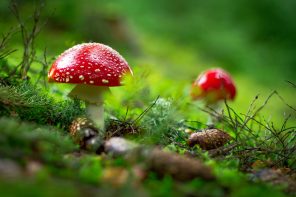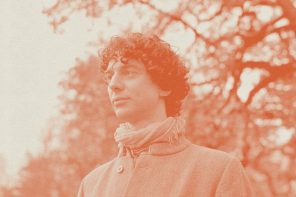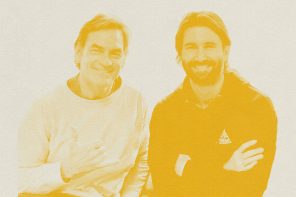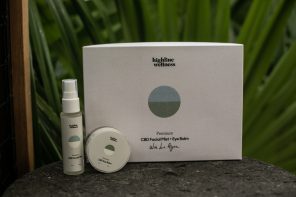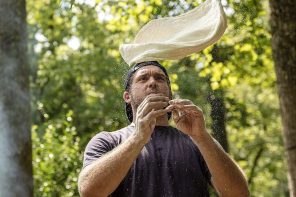Infectious disease expert Laurel Bristow talks with actress and breast cancer activist Angela Trimbur
@kinggutterbaby x @angelatrimbur
Most of us would probably say this hasn’t been your average year, but for Laurel Bristow it’s really been a humdinger. As an infectious disease expert, her voicemail has been a little more full than usual and she has found herself one of the go-to sources for sorting fact vs fiction in headlines in this topsy turvy year.
On the other side of the table, you could say that actress, writer, dancer and choreographer Angela Trimbur is also navigating the turbulent year with the poise she’s shown since a breast cancer diagnosis she received in 2018 interrupted her career. Since then she’s opened up a dialogue with other patients, supporting others when they need it most.
The two of them explore dealing with shitty things, making connections and birds.
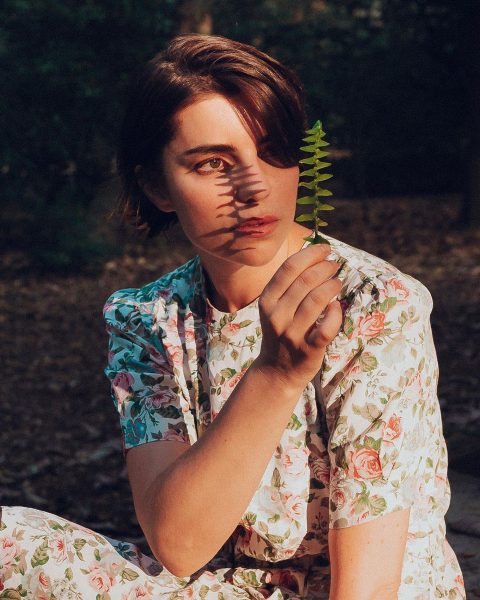
Flocking Together
Laurel Bristow: You’ve documented so much of your cancer diagnosis and treatment on your Instagram and in a very lovely, intimate and vulnerable way. What is your thought process about what you choose to share and what you don’t?
Angela Trimbur: I see it as a sort of a way of bookmarking moments in my life. Kind of like a time capsule for my future daughter to be able to go back and learn about what her mom was like. I’ve always just been a bit of an open book online prior to a breast cancer diagnosis. But this is a whole new world of vulnerability. I did debate on how much of it I wanted to share, but I quickly realized that this is not just some one-off unfortunate surgery with a few months of recovery time. It’s now a part of my life for many years to come. I personally felt like if I kept this full, heavy new path private, it would make me feel a level of shame somehow.
Laurel: You seem like such a strong community builder and you’ve started these online groups to support women who are going through cancer diagnosis and treatment during COVID. What do you think motivates you to make these connections, not only for yourself, but to be able to facilitate them for other people who are experiencing similar things?
Angela: I started these breast cancer video support group communities through COVID because I thought I was just going to be jumping back into my life and quickly realized through COVID that the new normal is being very isolated and everybody is now self-caring in their own way.
Understandably, I no longer really have that level of support with my friends. I don’t want to call them and tell them this sad feeling I’m having about having to lose my ovaries, because they’re trying to navigate through their own depression. I love Marco Polo. People almost think I’m getting paid by them because I talk about it so much, but this app is amazing.
When I was going through chemo, people would ask me, “What can I do to help? Is there anything I can do?” And I’d say, “Download Marco Polo and leave me just long rants of you talking or give me a little tour of your apartment.” It became a very intimate way to stay connected with people, video messaging. It’s almost as if you’re saying a monologue. You’re looking at yourself talking but to your friend, and recording this video message for somebody to listen to later, whenever.
Download Marco Polo and leave me just long rants of you talking or give me a little tour of your apartment.
It’s great because there is not the normal energy back and forth of a conversation where you have to say, “Aha, right.” All of that’s gone and you’re just really hearing somebody’s uninterrupted thoughts. And so through chemo, when I felt tired, I didn’t know when to predict when I’d want to have a friend come over or talk on the phone really, but I could easily, at any point, just open my Marco app and watch a friend and then respond whenever. The breast cancer support group that I started through Covid on it has branched out into three different full groups with almost 100 women in total, and for all of us to have easy access to this personalized level of connection with women who have been or are going through the same thing and truly understand like no one else can, has become crucial for us all. There are women who have just been diagnosed last week, to women halfway through chemo and in the chair alone, to women 10 years in remission. We share, we cry, we sing songs for each other, share things we have written, we encourage, we vent, we get it. All the groups are titled “Sisters”, because it really is an automatic bond. It’s really important to feel so supported and understood in this way, and in especially in this format.
Laurel: I saw on your highlights on Instagram at one point that someone asked what you’d say to someone newly diagnosed with breast cancer and your response was something along the lines of you have been chosen to learn a very important lesson. What do you think your top five lessons have been from your experience so far?
Angela: Okay. Number one. Nothing is certain. Curve balls are coming. Number two. Only you truly understand yourself, so not everyone in your life will get it. And what’s most important is that you know what’s best for you. Three, life is not supposed to stay the same. Four, this is a major metamorphosis … the caterpillar is temporary. And five, sometimes, you won’t know the lessons you’ve learned for a while, and that’s okay too. Take your time, as much time as you need, the lessons will “aha!” when they are supposed to.
Laurel: You had previously mentioned a little bit about how you like to do these rituals and it does seem like it’s a very important process throughout your life. Do you have a guide that you follow for designing them or is it really freestyle or group contributions? How do you usually come up with the stuff that you do?
Angela: Well, I hadn’t really done rituals before getting diagnosed, but when I learned that I would be losing my biological breasts, which by the way, R.I.P., I love them so much. To me, they were perfect.
It was my most exciting thing to reveal to someone in a sexual fantasy. So when I learned that I was losing them and all the things related to them, the third question I asked the doctor when I was diagnosed was like, “Am I still going to be able to breastfeed?” And she said, “No,” and I just sobbed. So I knew that there’s something I needed to do to really celebrate them and say goodbye. So I reached out to my childhood friend Campbell and I’m crying and said, “I want to do something to honor them first, before the double mastectomy. Maybe some sort of topless ceremony, and we can get my closest friends together, and something that feels important, and a real way to say goodbye.”
And so we planned out exactly how it would go down. She offered to take my lead and just said, “What exactly would you want? How do you picture it?” And I said, “I want us to be in Topanga Canyon in an Airbnb, and it’s at night. And I see us all sitting in a circle. And there’s a bunch of herbs and flowers in the center of it. And we each go around and add whatever we choose to a bowl. And the bowl has oil. And then you pass it to the next person. And everybody shares something that they feel about their breasts or about an intention for my surgery. And then we all take off our tops and do a breast massage on ourselves. Then I’m going to lay in the middle, and everyone decorates my breasts with flower petals. And then we’re all going to sing the same song into the sky and howl like wolves.” And she’s like, “Absolutely. Let’s do that.” And she offered to run them.
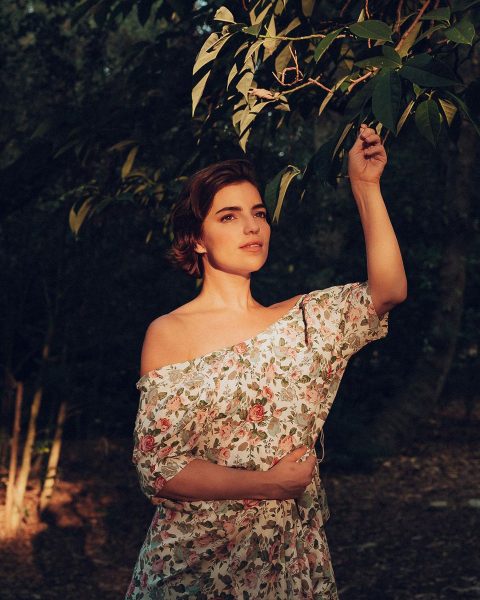
Laurel: Very important question and transition: Birds. There is an aviary at the hospital where I work— and you have two lovely birds, Henry and Annie. How did they come into your life, and how would you describe their little bird personalities?
Angela: Birds are such an underrated pet. So many people have this hesitant mindset about them for some reason, but anyone that’s met Henry and Annie has changed their tune, and sometimes they even want to get one themselves.
Birds came into my life when I was 12. I took my allowance money, it was $14, and I went to the pet store to see what kind of bird I could get. The owner laughed when he saw that I had $14. He’s like, “Well, these birds are $60.” And then I was super bummed, and he saw that. And then he said, “I do have a bird I will sell to you for $14, but she’s very mean.” And he just put on this garden glove, put his hand into the cave, and this bird was attacking him. It was truly shocking to see. And then tries to pull the bird out, finally gets frustrated, puts her back in. And I just stared at her, and confidently said, “I can make her nice, and I want to buy her.”
I was a homeschooled Jehovah’s Witness at the time, so she became my best friend. I would just slowly build trust with this bird by just walking from far away to the cage, singing, getting a step closer every day, slowly getting, inch by inch, into the cage until she’d hiss, and I’d respect it.
Then one day, I had a friend come over, and she did a cartwheel in my bedroom, and the birdcage fell over. And I dove for Ashley (because she was grey, her name was Ashley), and I grabbed her right away. And she just was in my hand like putty. I just felt so successful. And I thought, I have a bird. I have a special bird thing. I know how to get them to trust me now. I had her for 14 years.
And then now as an adult, I was writing a script about my childhood, and Ashley would be a character. So I went back to a bird store to remind myself what cockatiels are like. And I wound up being there for three hours, and every day, I’m like, I got to go back for “research purposes.” And the people that work there were definitely to each other like, “Oh boy, Angela is back. She’s going to be here all day and not buy anything.” And I just kept saying, “I might buy one. I might buy one.” They didn’t seem to believe me. I felt like I was just this freak bird girl coming in every day.
And then I eventually did buy one, almost just to prove them wrong. And that was Henry. And so for a year I only had Henry. She was immediately like, I was her flock leader, and we had this very beautiful bond. She is pretty spoiled, I do hope she knows that. She has a whole room to herself, all these hang spots I set up: a Barbie house, a doll house, big branches, and there’s ladders everywhere. It’s a whole world. But I became the cockatiel lady to my friends because it’s such a rare thing for someone to have a bird. And I drive around with my bird. It’s fully a part of my life as if it was a dog.
But I became the cockatiel lady to my friends.
Then somebody found another cockatiel in the middle of the road. She said that she stopped her car, ran over and picked up this bird that she thought was dead, but it was alive. He only had two toes. He had a very bloody head. He had half of a wing. Yeah. And so she asked a friend, got my number somehow. And then was texting me pictures saying, “Do you want this bird? I don’t know what to do with birds.” I said, “Of course bring him over. But I don’t think I can keep him, but I’ll help.” Because of my tight bond with Henry, and I knew that if you get a second bird everything gets… well all the personalities change. Annie reminded me of my old dear Ashley, because Annie was also terrified of people and scared and for a legit reason, obviously. He’s been through a lot, I mean he has two toes and half of a wing!
I just felt like my teenage self around him, where I played the music, and I did the inch by inch with the cage. And before I knew it, he became very docile. I named him Annie because of the movie Annie, my favorite movie. Annie the orphan who got to live in the mansion. So Henry’s a girl and Annie’s a guy.
Laurel: Love it.
Angela: Annie is super obsessed with Henry. Truly can’t be away from her. And Henry could not care less. Annie is a loyal friend, very endearing. He says “Hiiii!” and “Come on!” and “What is this?”. And sings the sweetest songs of his own style. He has no social boundaries, and Henry doesn’t care, she knows she is the OG. She has this current obsession with laying infertile eggs. And they don’t have babies in them because they can’t have sex because Annie only has the two toes. Male Cockatiels are supposed to jump on the back of a female and balance themselves and do this windshield wiper thing with their butts. Since Annie can’t do that, Henry just lays these infertile eggs, like a period. I do have a flamingo slipper that Annie climbs up on, and he can hang on by his little toe and have sex with it, which is very entertaining to see him make love to this now pretty beat up slipper.
Laurel: I would’ve never known that having a lack of toes would be cockatiel birth control. Amazing.
Angela: I know, I know. I feel a little creepy when I’m watching. But it’s too funny and fascinating to look away.
Laurel: If you could be the official spokesperson for literally anything, it could be Doritos, the moon, flossing without your gums bleeding, anything, what do you think you would want to be the official spokesperson for?
Angela: Floral wallpaper.
Laurel: Oh my god, good answer.
Angela: It’s all over my house, and it’s been such a game changer.
